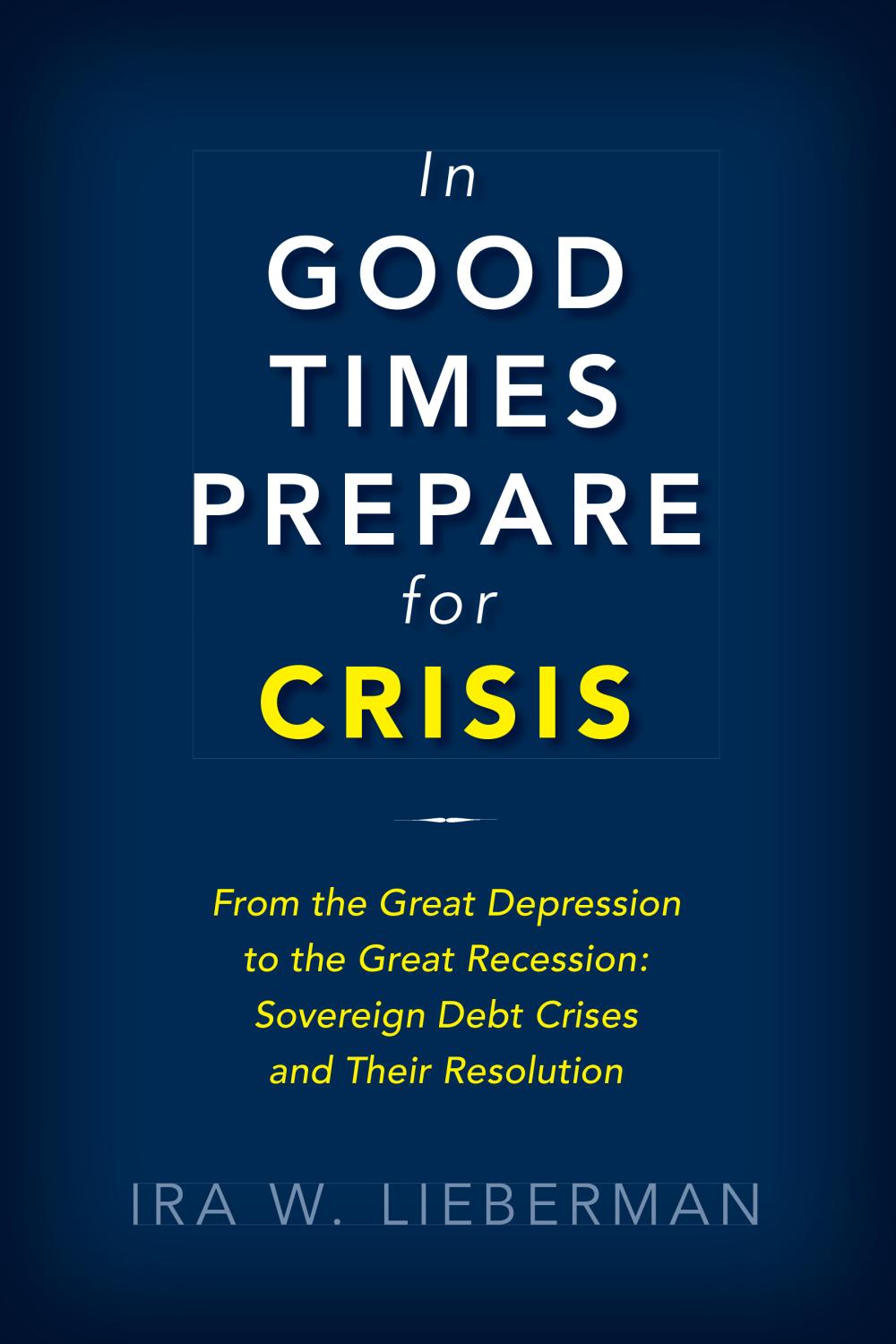Sovereign debt crises are a little like the weather: One can get ready to endure them and maybe take some steps to lessen their impact, but so far it hasn’t been possible to prevent them. Like the weather, they just keep happening. That’s the overriding thesis of this book tracing the major debt crises of the past century, starting with the Great Depression and running through the recent Great Recession.
Written by a former World Bank expert on debt crises, this book discusses best practices for how such crises can be resolved. As the painful experience of the past decade reminded everyone, frequent debt crises and defaults do great damage to economies and cause vast personal hardship. But resolving them has proven difficult—both economically and politically—and has taken time, almost always requiring a lender of last resort such as a country’s central bank or the International Monetary Fund.
Too often, efforts to end debt crises have been little more than a palliative, and the debt overhang from one crisis contributes to the next, as illustrated by the ongoing saga in Greece. Both private and sovereign debts have increased substantially since the 2008 crisis, with inadequate deleveraging. This debt overhang leaves countries vulnerable and with limited maneuverability to address the next crisis.
This book does not pretend to describe how debt crises can be prevented. But it does draw useful lessons from recent crises that can help economists, bankers, policymakers, and others resolve the inevitable future crises with the least possible damage.
Praise for In Good Times Prepare for Crisis
Ira Lieberman’s wise and important book warns nations to prepare themselves, in good times, for the crisis that will come one day. Historically, he shows, nations have not prepared—to their detriment. And most of history’s lessons remain unlearned even now. Countries that borrow—and isn’t that all of them?—should heed his warning. Readers interested in international finance should read his book.
—Alan S. Blinder, Gordon S. Rentschler Memorial Professor of Economics and Public Affairs, Princeton University
This is an impressive historical analysis which reflects Ira Lieberman’s knowledge as both a macroeconomist and a microeconomist. The message that crises recur is well grounded in history and Lieberman explains how one crisis has often laid the groundwork for the next one. Few like to hear this message in good times; Lieberman delivers it forcefully.
—Kemal Dervis, senior fellow, Brookings Institution; former head of the UN Development Program and former minister of economic affairs, Republic of Turkey
A magisterial synthesis of financial crises, from the Napoleonic Age and post–World War I, through emerging markets, to recent episodes in the eurozone. If only policymakers would read and heed the lessons Lieberman draws in this important book.
—William P. Mako, distinguished faculty, Paris School of International Affairs—SciencesPo
Ira Lieberman worked for the World Bank from 1994 to 2003, helping resolve financial crises in Mexico, East Asia (primarily Korea), Turkey, and Argentina. He worked with the Troika—the European Central Bank, the European Commission, and the IMF—on crisis resolution in Portugal in 2013 and in Portugal and Spain on crisis resolution in 2015. He also worked on the initial pro-market economic reforms in Russia from 1992 to 1995. Lieberman worked in Mexico from 1985 to 1987 after the 1980s debt crisis on postcrisis structural reforms including restructuring of highly indebted state-owned enterprises and preparation for privatization, a necessity due to Mexico’s sovereign debt crisis.


